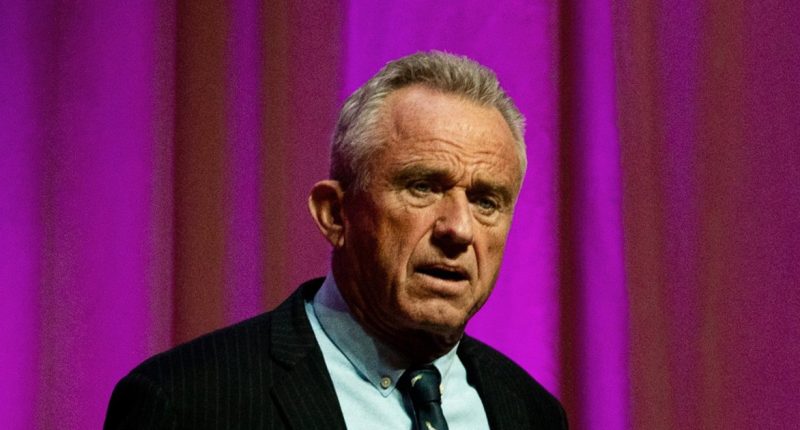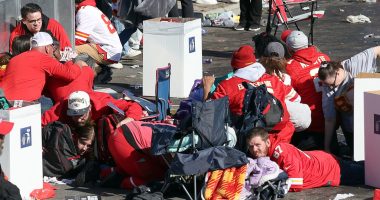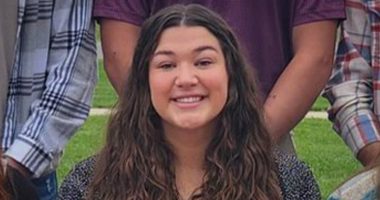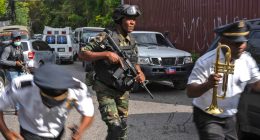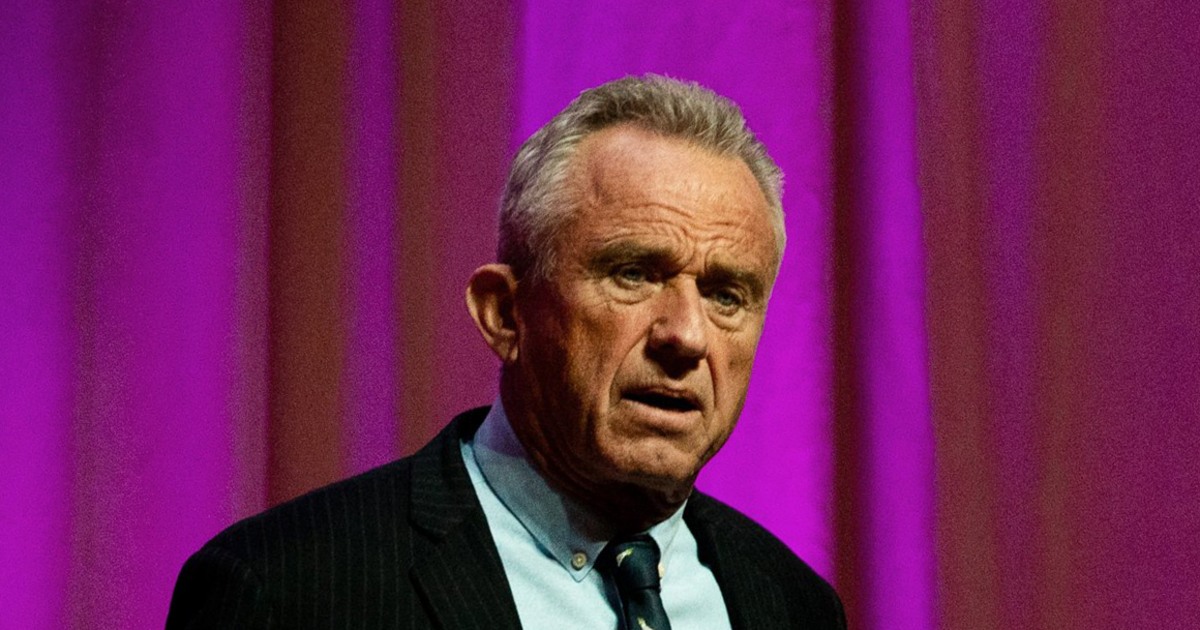
A Democratic group is accusing independent presidential candidate Robert F. Kennedy Jr. and the main super PAC supporting him of illegally coordinating with each other to get him on the ballot.
Third Way, a centrist Democratic think tank that warns that third-party candidates could spoil the re-election chances of President Joe Biden in November, wrote to the secretaries of state in Arizona, Georgia and Michigan on Friday urging them not to accept any signatures gathered by the super PAC to help Kennedy.
The pro-Kennedy super PAC, American Values 2024, has announced plans to spend at least $15 million to help Kennedy get on the ballot, hiring at least three canvassing firms to gather signatures on his behalf in multiple states.
But attorneys from the powerhouse Democratic election law firm Elias Law Group, representing Third Way, argue that it is impossible to steer clear of federal rules barring coordination between a candidate and a super PAC while simultaneously complying with state laws that they say require candidates themselves to submit signatures for ballot access.
“Federal campaign finance law requires American Values 2024 to undertake this effort independently of Mr. Kennedy,” Third Way’s attorneys wrote in a letter to Arizona Secretary of State Adrian Fontes. “However, Arizona law does not permit a third party organization to collect and submit nomination petition signatures independently of the qualifying candidate.”
Arizona law refers to the “candidate and his or her legal counsel” submitting signatures for ballot access, but makes no mention of other parties submitting on the candidate’s behalf, the letter states.
The letters to the top election officials in Georgia and Michigan refer to similar clauses in their respective state laws, such as Michigan’s stating that signatures are to be “filed by a person to qualify to appear on an election ballot as a candidate.”
Third Way’s complaint to the states follows a similar one the Democratic National Committee lodged with the Federal Election Commission last week.
Kennedy’s team says the law is on their side and blasted Democratic efforts to quash his candidacy as undemocratic. Campaign manager Amaryllis Fox Kennedy said that the campaign has “never planned to rely on [the super PAC] for ballot access.”
“We have a nationwide operation underway and will get on the ballot in all 50 states with our own volunteers and small-dollar donations,” she said in a statement. “Americans are tired of the establishment resorting to legal threats against their political opponents and deserve a leader who is asking for their vote based on the issues that affect their lives.”
Tony Lyons, the super PAC’s president and Kennedy’s book publisher, said Democrats “know their candidate can’t win arguments in marketplace of ideas and are therefore waging an all-out assault on voting rights.”
“Precedent speaks volumes. As exemplified by Deleeuw v. State Board of Canvassers in Michigan, a case firmly upheld by the Supreme Court, the act of collecting signatures and submitting them on behalf of a candidate is not just a civic duty but an exercise of our First Amendment rights,” Lyons added.
Shanna Ports, senior counsel at the Campaign Legal Center, a nonpartisan, nonprofit watchdog, said the rules governing super PACs are murky. The FEC has not updated anti-coordination rules since Citizens United, the landmark 2010 Supreme Court decision that paved the way for super PACs, and the agency rarely takes enforcement action.
“It’s created an environment where campaigns and super PACs feel like they can push the boundaries more and more because there’s no enforcement,” she said.
Getting on the ballot is any independent presidential candidate’s biggest challenge, as Kennedy often laments.
The incredibly laborious and expensive process of qualifying for the ballot in all 50 states involves collecting at least 900,000 signatures from registered voters in each state, with some requiring a certain number of voters from each of its congressional district.
Kennedy’s official campaign has said it is relying mainly on volunteers to collect signatures for its ballot drive, while his allied super PAC has said it will step up by hiring canvassers.
Democrats say that arrangement is not legal and argue others would have done it if it were.
“Any campaign would love to outsource ballot access to a super PAC,” said Matt Bennett, the executive vice president of Third Way. “The problem is it is illegal.”
Bennett pointed to the former presidential campaign of Florida Gov. Ron DeSantis, which offloaded as many duties as possible from the official campaign to the super PAC, called Never Back Down, which took on virtually all of DeSantis’ field operations and even paid for events. That arrangement raised concerns about potential illegal coordination among campaign finance watchdogs.
“The DeSantis people pushed the boundaries as far as they possibly could,” said Bennett. “They used Never Back Down as aggressively as has ever been seen in presidential politics. And even they wouldn’t go far as having them engage in ballot access.”
Ports noted that at the same time super PACs find workarounds to work closer with campaigns, candidates often use anti-coordination rules as defense for actions taken by their allied groups.
Earlier this month, Kennedy apologized to some family members who were offended by a Super Bowl ad run by American Values 2024, noting on social media that it was “created and aired … without any involvement or approval from my campaign” since FEC rules “prohibit Super PACs from consulting with me or my staff.”
Source: | This article originally belongs to Nbcnews.com
